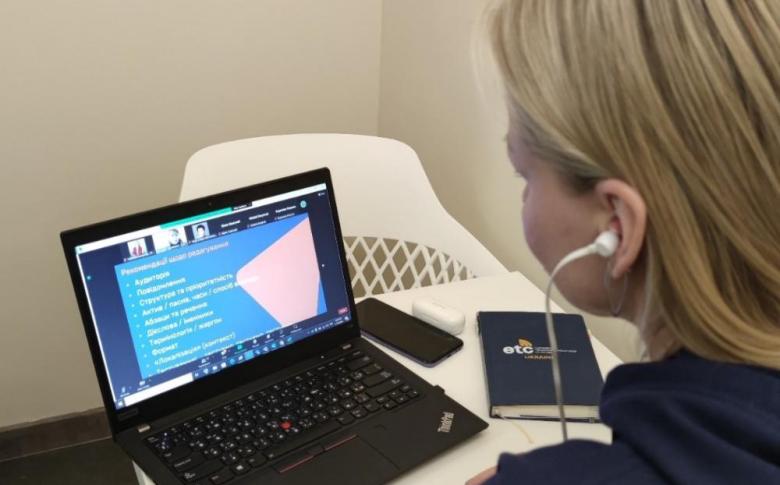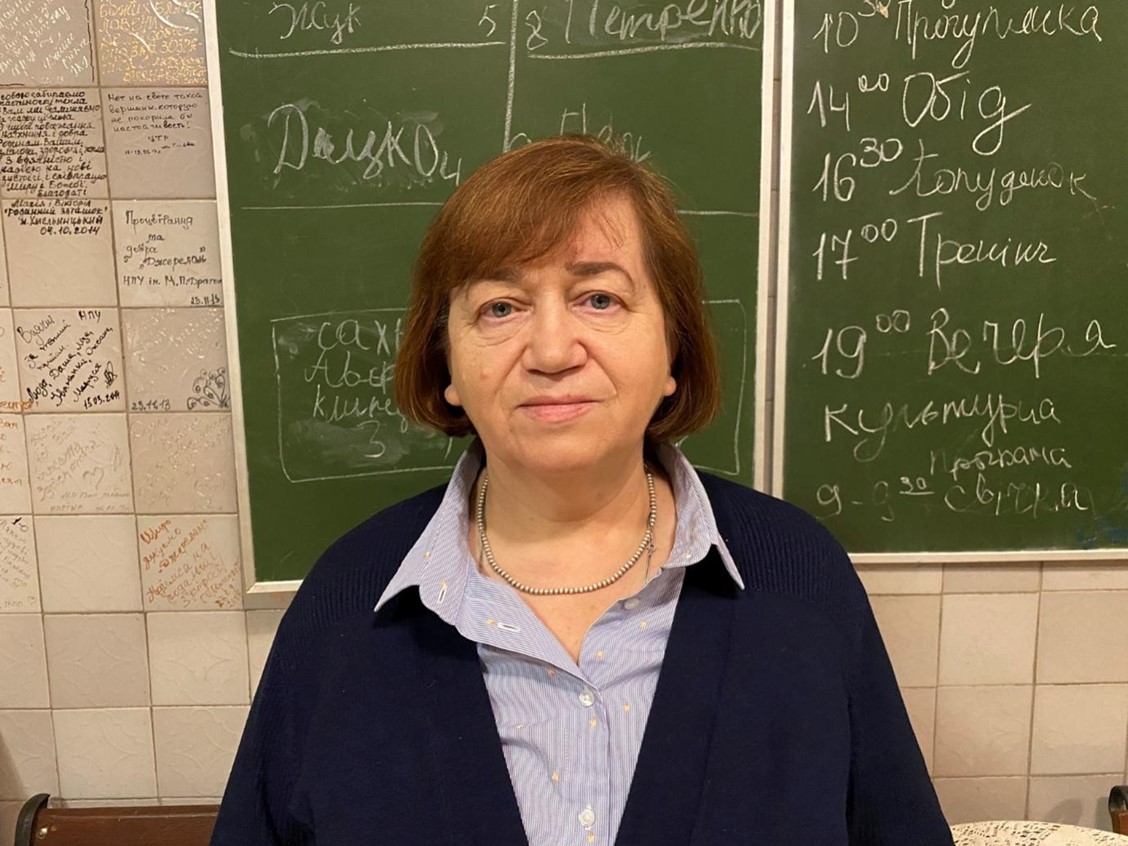Let’s speak plainly: WFP-led workshops in Ukraine show humanitarians how to communicate better with communities in crisis

By Elizabeth Millership
Imagine your life has been turned upside down by conflict. You have left home, the future is uncertain, and you need help.
Having access to information you can understand and use is vital for survival.
This is still the reality for millions of people in Ukraine since conflict broke out on 24 February 2022.
One third of the population has been uprooted, driven from their homes to safer areas within Ukraine, and to neighbouring countries across Europe.[1]
Many people are living in damaged homes or in unfamiliar areas. As the war continues, humanitarian needs are multiplying. The elderly, people with disabilities, women, and children are the most vulnerable and make up 90 percent of people fleeing the crisis.[2]
Communication as aid
A Ukrainian-speaking chatbot called ‘vBezpetsi’ (safe spaces) connects people with humanitarian assistance and helps them understand their rights.
vBezpetsi is an inter-agency platform created by the World Food Programme-led Emergency Telecommunications Cluster (ETC). It aggregates information from different humanitarian partners.
on cash assistance, protection, health, shelter, education, and job opportunities. The bot also gives information on assistance for people fleeing to Poland, Hungary, Slovakia, Romania, Moldova, Czech Republic, and Bulgaria.
Over 19,000 people have used the ETC Chatbot service since its launch in 2022.
Communicating to be understood
Recently, the ETC in Ukraine teamed up with the Accountability to Affected Populations Working Group and CLEAR Global[3] to deliver ‘plain language’ workshops to those on the frontline of humanitarian assistance. It’s part of the next step in improving communication with communities in crisis―whether through websites, SMS, messaging platforms, chatbots, or social networks.
‘Plain language’ is a communications discipline focused on clarity, and its goal is to help people find and use information.
“Plain language plays a vital role in presenting information, especially where the affected population is concerned. Originally, plain language principles were introduced when law-makers understood that bureaucratic and sophisticated ways of presenting information in law are an obstacle for people who want to get certain information or a service,” says Bohdana Syniakevych, a CLEAR Global trainer.
“Now, in this time of conflict, we also need to consider the lack of time, stress and other factors which the affected population still face while asking for help,” Bohdana explains.
According to Karina Melnyk, another CLEAR Global trainer, “When organizations use plain language, they can ensure that their message is communicated clearly to everyone. This includes those with limited literacy skills or who speak English as a second language.”
Clear communication is essential when working with affected populations who may be experiencing trauma, stress and overwhelm. “It’s especially critical when providing information about health, safety, or other critical topics,” Karina says.
The objective is clear
One of the ETC’s 38 plain language workshop participants is Raisa Kravchenko. For the past thirty years, she has led ‘Djerela’ Association and the Ukrainian Non-Governmental Organization (NGO) Coalition for Persons with Intellectual Disabilities based in Kyiv and she was also a member of the Disability Council of the Ukrainian Government.
For her, making information accessible is a personal mission: Raisa’s 38-year-old son has intellectual disabilities, and she wants to change his life for the better through her lobbying work.
Years of tireless efforts by accessibility advocates led to the additions of ‘plain language’ and ‘easy to
read’ in the translation of Articles 2 and 9 of the UN Convention on the Rights of Persons with Disabilities (CRPD). This will clear the way for people with intellectual disabilities to get greater access to information.

There are over 260,000 persons with intellectual and psychosocial disabilities in Ukraine.
”The plain language discipline is necessary in health and social services, judicial and forensic practices, education, never mind emergencies,” Raisa explains.
As she puts it, in this time of conflict, a special training programme is critical for communication with persons with intellectual disabilities, their guardians, caregivers, and the professionals working for them.”
Demand is high for more plain language workshops after the success of ETC’s February event. A further 15 sessions are being planned for humanitarians from May to December 2023.
The need for plain language has never been clearer.
[1] https://www.unrefugees.org/emergencies/ukraine/
[2] https://www.unrefugees.org/news/5-things-you-should-know-about-the-war-in-ukraine/#:~:text=Ukraine%20has%20a%20total%20population,countries%20in%20Europe%20or%20abroad.
[3] Formerly called Translators without Borders: https://clearglobal.org/